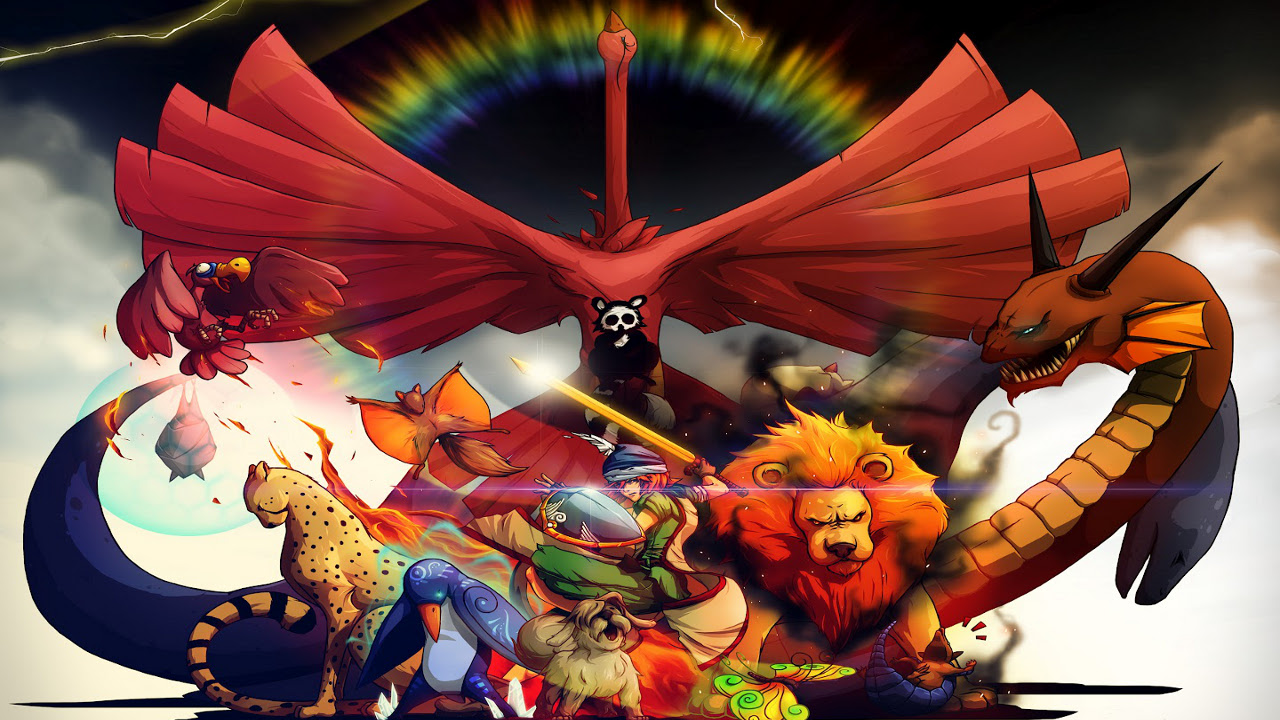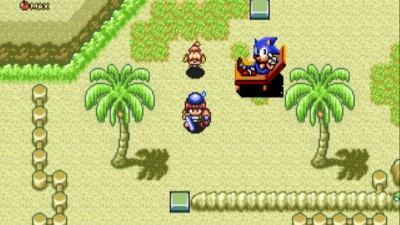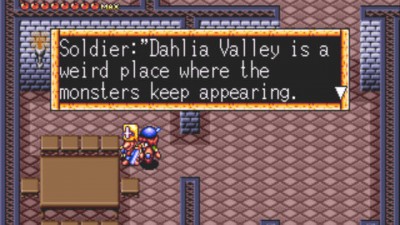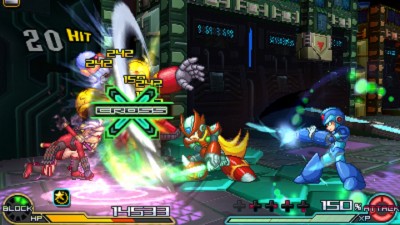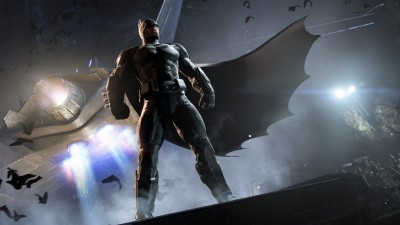When Nintendo’s The Legend of Zelda: A Link to the Past was released in 1991, the world went wild. While the first two Legend of Zelda games created legions of fans across the world, the Super Nintendo classic brought the series to new heights, and it holds up almost twenty-four years later. Beloved for its expert design, fiendish dungeons, and its mid-game twist that doubled the already plentiful playable space, it’s often lauded as one of the titles that gave Nintendo’s 16-bit behemoth an edge against its rival Sega Genesis.
What many in the West don’t realize, however, is that the Genesis played home to a game which many see as an answer to Nintendo’s action-adventure classic. Developed by Nextech and published by Sega in 1994, Crusader of Centy is a game with several resemblances to A Link to the Past. You play as a young boy, hacking and slashing through the world of Soleil in order to save the day from monsters once thought extinct. You collect medals to obtain the Holy Sword, the only weapon in the world powerful enough to defeat the final boss. You even spend the second half of the game warping between two different worlds where what you do in one directly influences the other. But Crusader of Centy is a charming, thought-provoking game worth playing and certainly worthy of being looked at independently of its probable inspiration.
Perhaps the biggest difference between the two games is the focus on story. It would be difficult to argue that its story is a strong point of A Link to the Past. It essentially boils down to what many RPGs at the time were: tales of saving the world and the princess by going to several places and defeating everything in sight. While sometimes forgetting about its own narrative, Centy’s story is compelling. After the intro bits that teach you how to swing your sword and maneuver the game’s world, the 14 year old hero Corona encounters a fortune teller who in two lines of dialogue disables your ability to understand humans.
Until the game’s midpoint you spend your time communicating with plants, animals, and monsters. Said monsters in particular are the ones who drive the narrative-dialogue with them is meant to make the player question the idea that monsters are inherently evil and must be destroyed for the good of humanity. One of the more poignant scenes occurs when Corona is transformed into a monster by a magician and is forced to speak with many other monsters who lament the human-beast dichotomy before being killed after you are turned back into a human. It’s enough to make the player feel guilty about slaughtering these “enemies” who may very-well be more misunderstood than inherently evil. The second half of the game is devoted to exploring this concept, but I won’t say more than that as to avoid dampening the experience.
Opting for a superficially less conventional approach to giving the hero power-ups, Corona gains abilities through animals that join him along the way. These items will allow you to do things like
run faster, control your sword after it’s been thrown, and make your attacks elemental. You can equip two at once, and much like Kirby 64: The Crystal Shards, certain combinations may yield results greater than the sum of their parts. Useless alone, Moa the Ostrich is devoted to this mechanic, strengthening the ability of the other equipped animal. It’s at best superficial, but it’s enough of a departure from Link’s toolset to give the game its own distinct feel that ties in nicely with the plotline. It is unfortunate that the majority of these animals are befriended in the ending hours of the game and make you wonder what could have been had the game been longer.
Centy certainly shines visually and musically. While I didn’t find myself humming any of the tunes after the credits rolled, the game’s music is intricate, fitting, and stylistically consistent. The game is wonderfully colorful and much of the world has a certain bounce to it, and the music reflects that. While it doesn’t have the grandiose masterpieces that the Zelda series has become known for, it doesn’t really call for it. Nothing is offensive and everything is unmistakably Centy.
Unfortunately, where Centy pales in comparison to its inspiration is in the most crucial place of all: gameplay. The game was designed for children, and it’s not hard to tell. A couple of the bosses have some intricacies that may take some brainpower to figure out and some enemies prove to be annoying, but there isn’t a fulfillingly challenging bone in Centy’s eight hour body. I died once and it was due to carelessness. None of the bosses, including the final one, should take you more than a few minutes to vanquish, and while some have elemental weaknesses, you always use your sword. To the game’s credit, there are a couple bosses that break the mold mechanically, but they aren’t any more difficult.
The puzzles are very much in the same vein, more often than not requiring the same, simple means to reach their end: pushing boxes or throwing your sword to hit an off screen switch. When you gain the ability to jump (which eventually becomes amplified by the ability to run), the world begins to feature some platforming elements, but none of the necessary ones are too tricky. Grabbing some of the extra golden apples (heart containers) or money is a little more exacting, but hardly necessary in a game so easy with few opportunities to actually buy things.
With all of this in consideration, playing through Crusader of Centy is still an enjoyable experience - even 20 years on. It unabashedly takes from A Link to the Past and lacks polish, difficulty, and a good translation, but I never felt bored playing through it. Early on in the game in Anemone Beach, you run into a smug Sonic the Hedgehog kicked back in a beach chair, and I imagine this is how Sega wanted you to feel throughout the adventure. I liken it to playing Final Fantasy: Mystic Quest - generally speaking, we aim to spend our time playing through deep, challenging games, but sometimes you just want to relax and not think too hard about what’s happening on the screen in front of you. If that’s what you’re aching for, Crusader of Centy will provide you with a perfect burst of relief.
And it doesn’t have Navi, either, which has to count for something.
